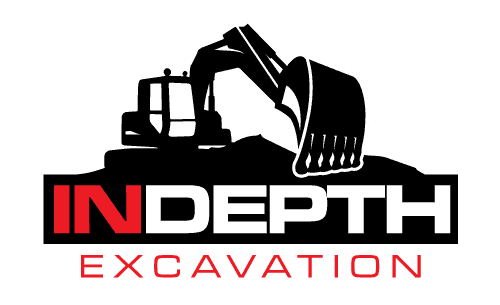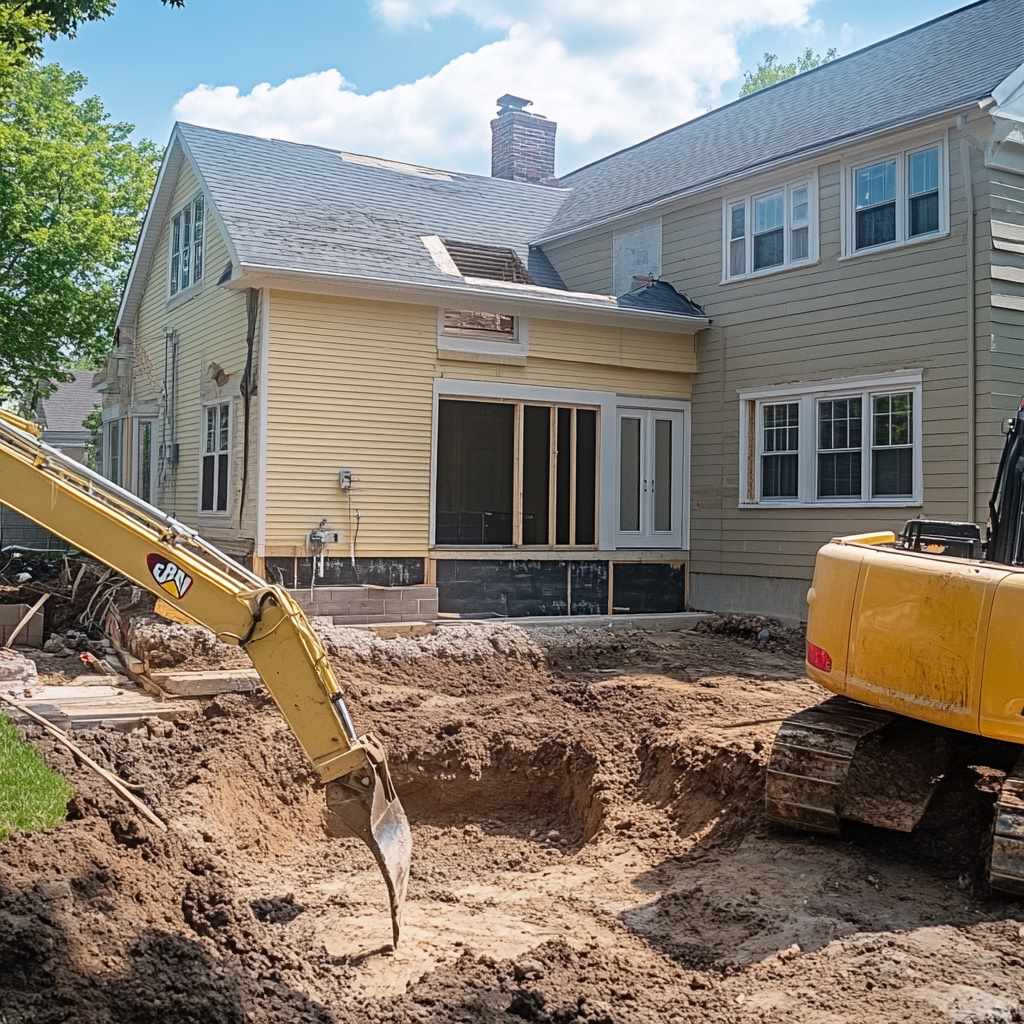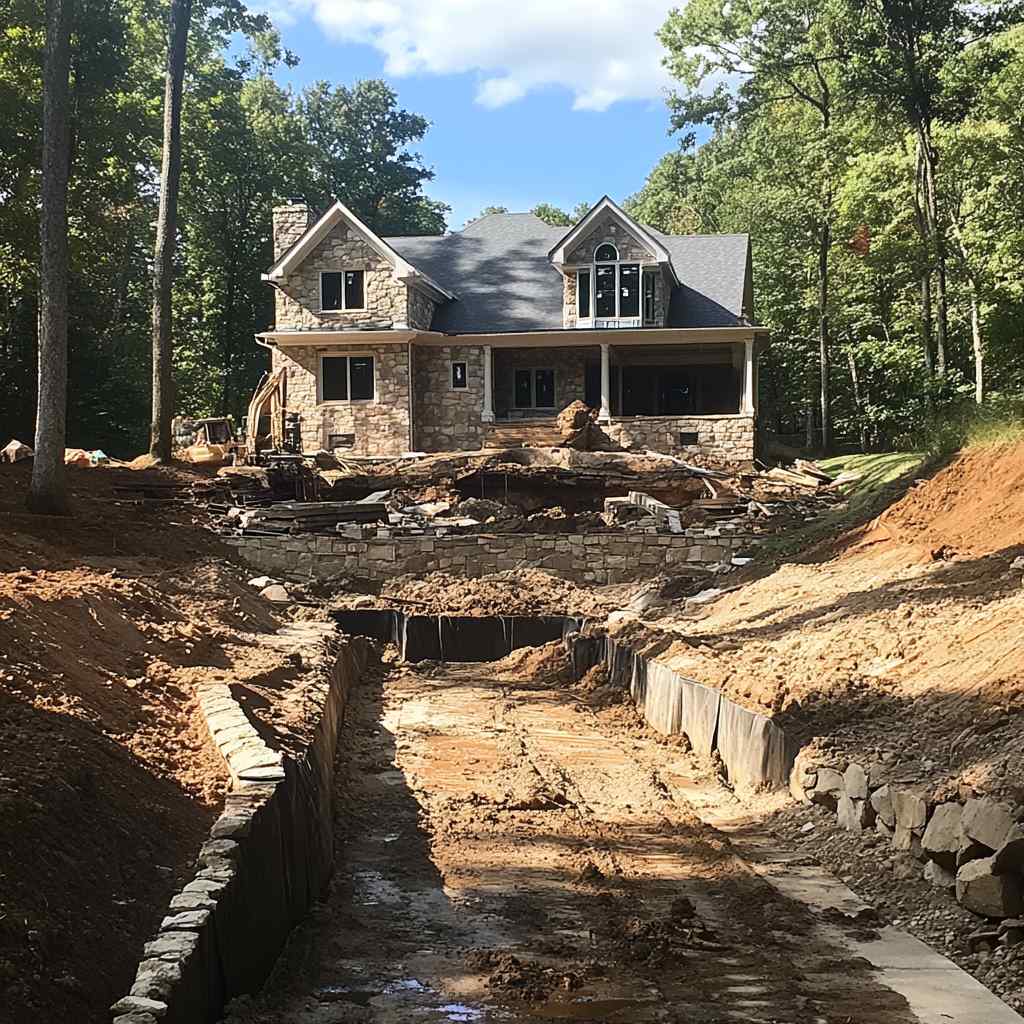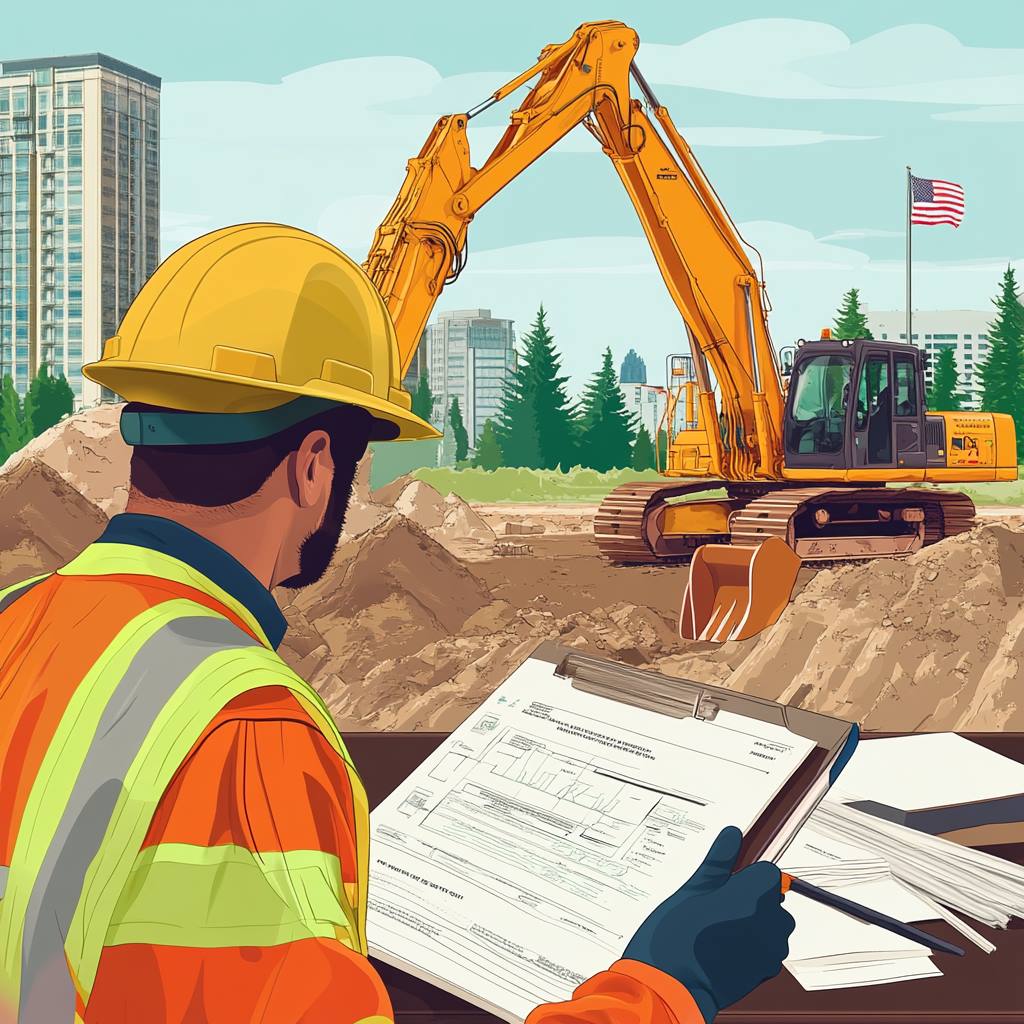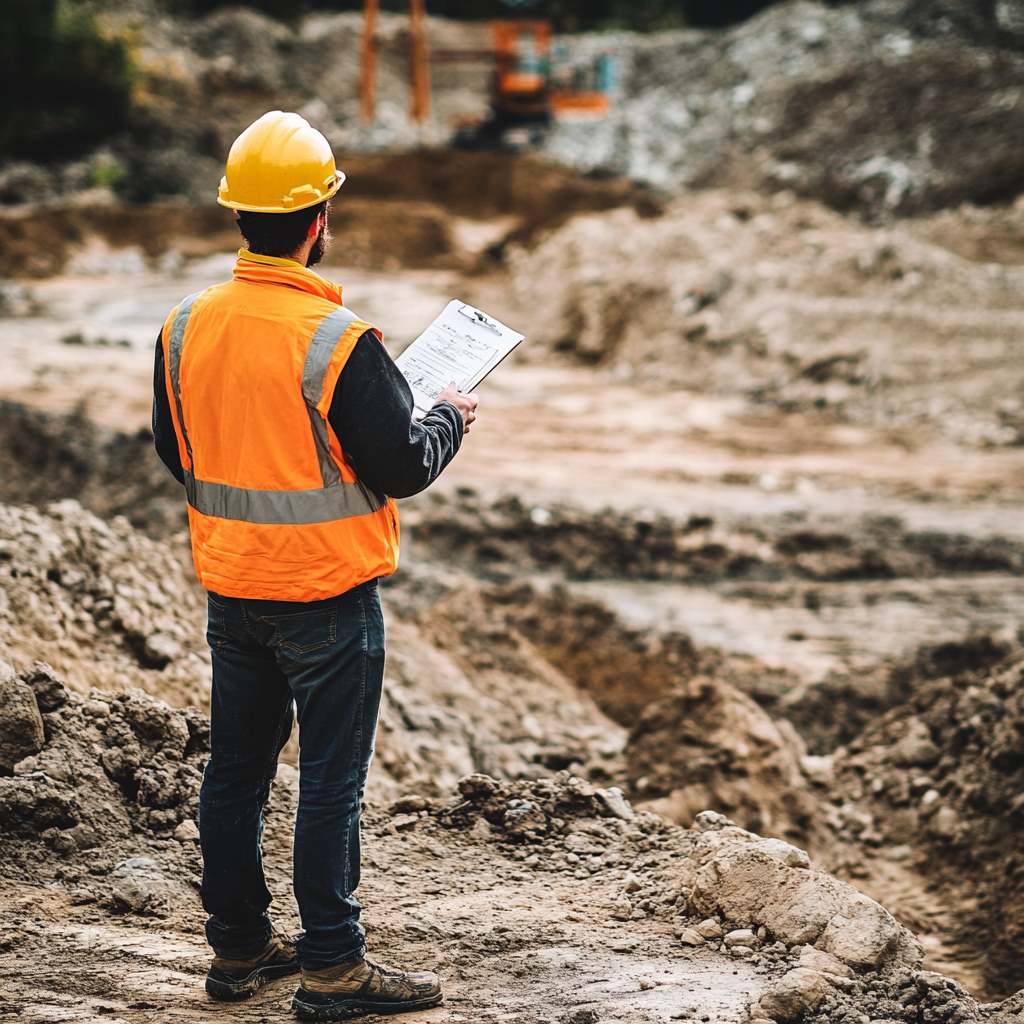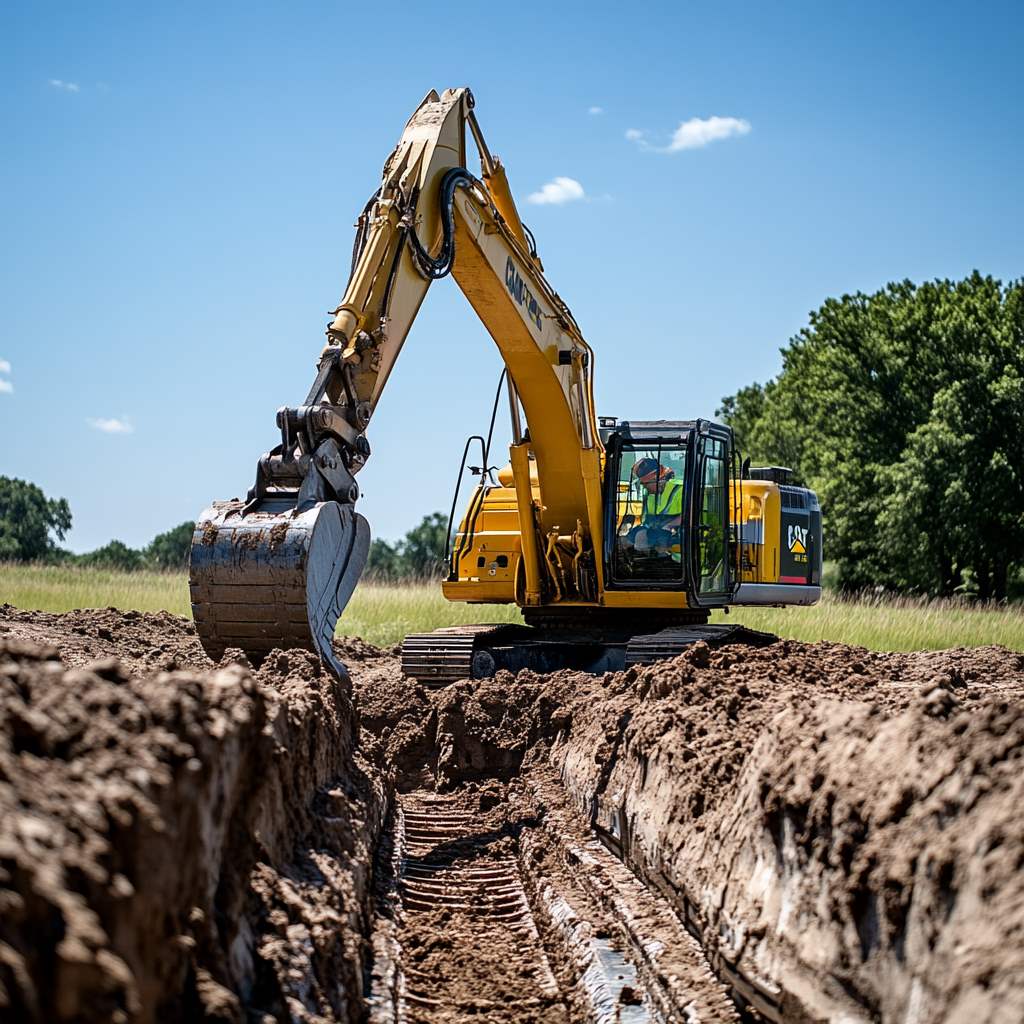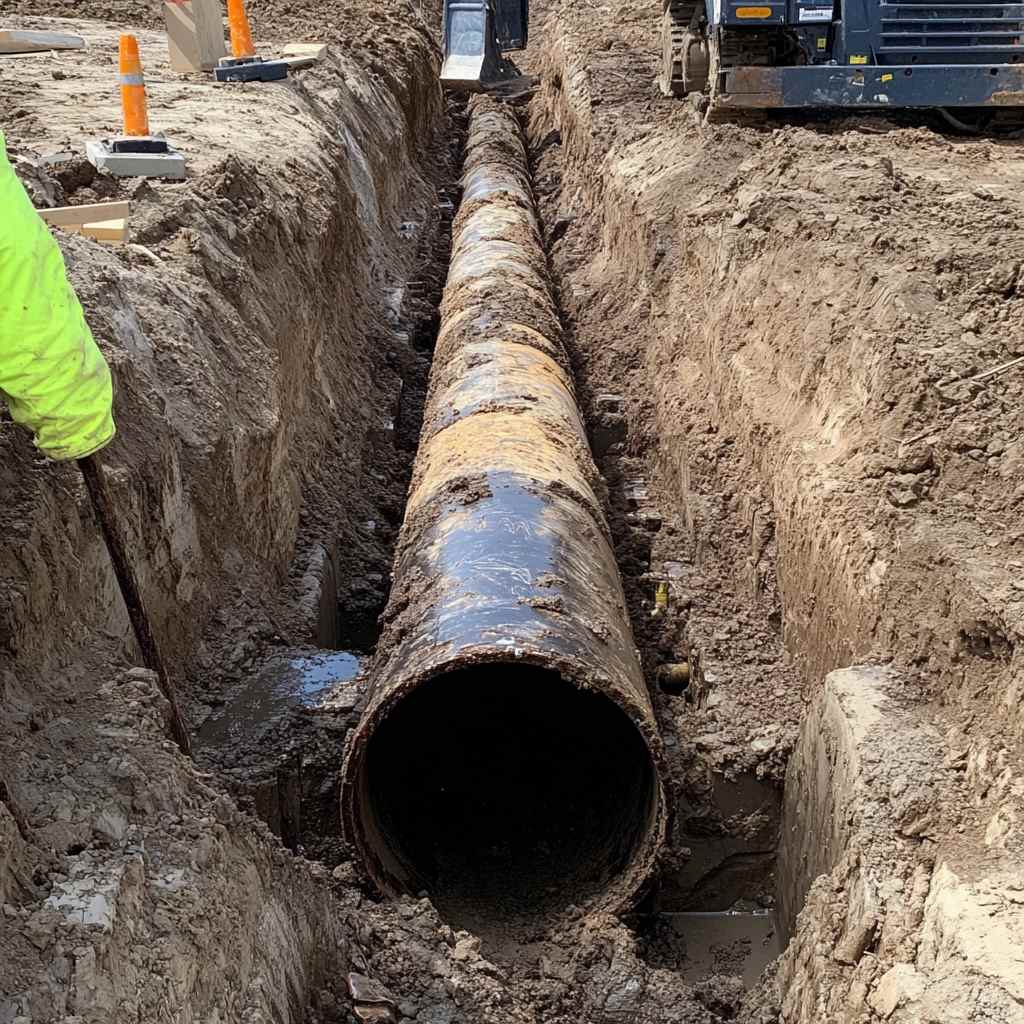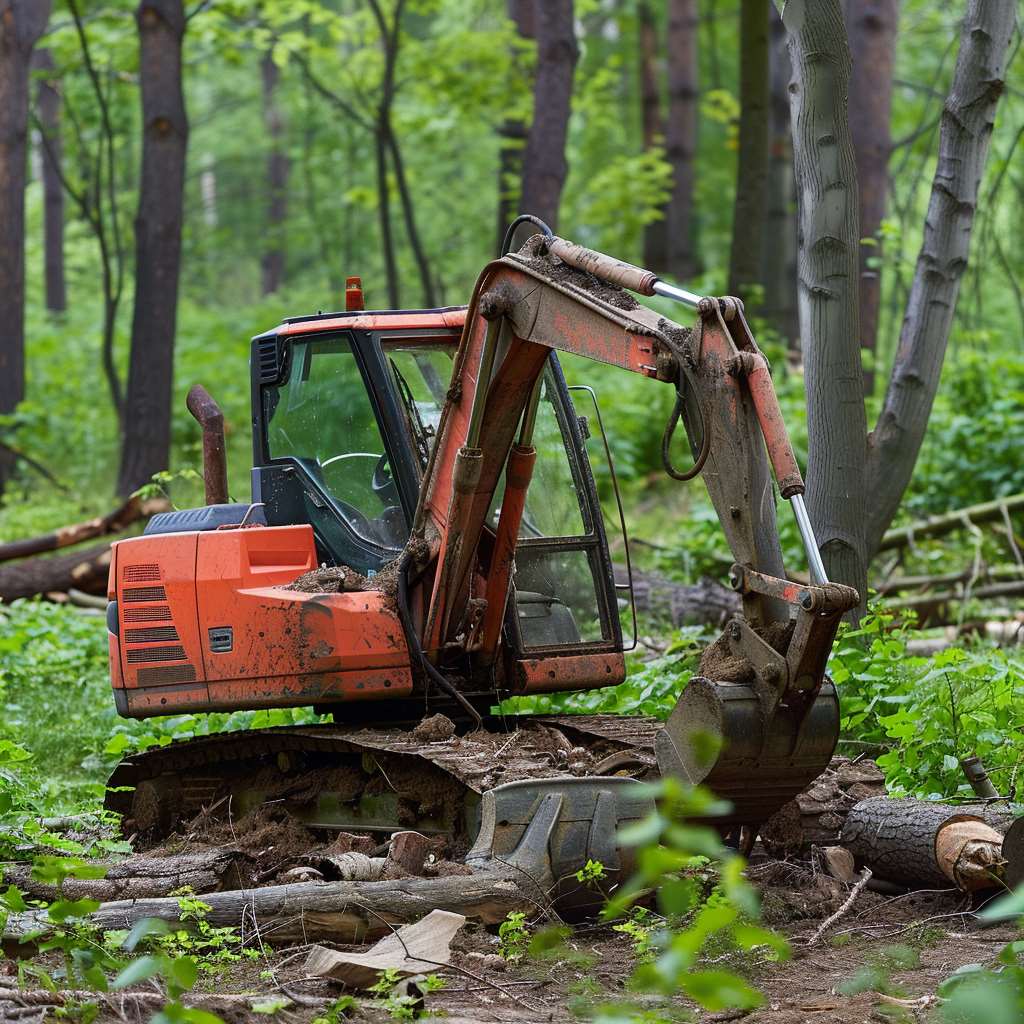Dreaming of expanding your home? When adding a new room, building a garage, or creating an outdoor living space, every great addition starts beneath the surface. Before walls can be raised and roofs extended, the ground beneath must be properly prepared.
Quality excavation like what you’d get from Indepth Excavation is the critical first step to make sure of a strong foundation and seamless combination with your existing structure.
Understanding the Role of Excavation in Home Additions
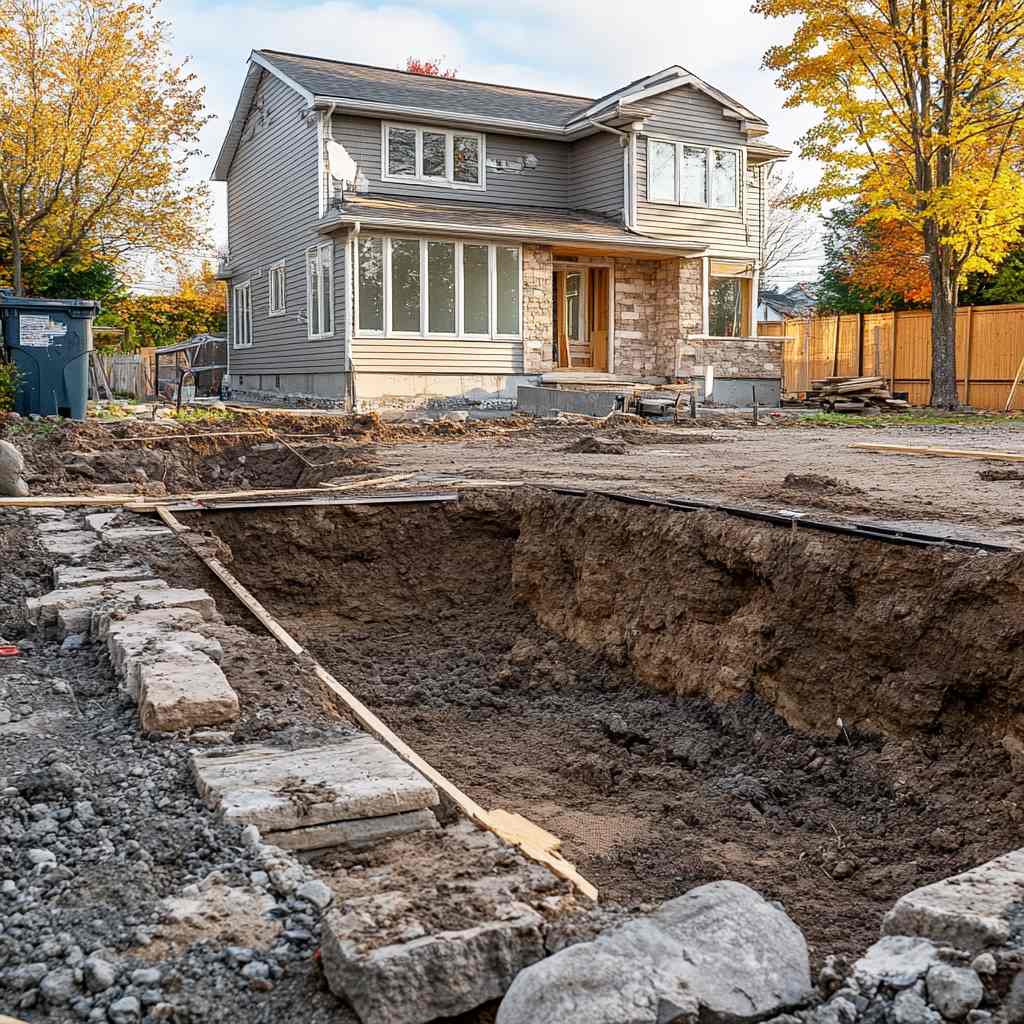
Excavation is the process of removing soil and preparing the ground to accommodate new construction. It involves digging, trenching, and grading to create a stable base for your addition.
It is literally a part of the foundation of your addition.
The Purpose Behind Excavation
- Establishing a Stable Base: A well-excavated site ensures that the foundation of your addition is solid, preventing future settling or shifting.
- Ensuring Proper Drainage: Proper excavation helps manage water flow, reducing the risk of pooling and water damage.
- Creating Space for Utilities: Excavation allows for the installation of essential utilities like water, electricity, and sewer lines.
Connection to Structural Integrity
The longevity and safety of your home addition rely heavily on the quality of the excavation work. Proper excavation supports the structure, ensuring it remains secure and intact for years to come.
What Happens During the Excavation Process for a Home Addition
Site Evaluation
Before any digging begins, excavation professionals walk the site to get a full picture of what they’re working with. They check the soil type to see how well it can support a foundation. They also examine the slope and grading of the land and identify obstacles like tree roots, underground utilities, or buried debris.
Knowing what’s below the surface helps avoid delays and costly changes later. A detailed evaluation now can prevent a multi-stop, multi-week job down the road.
Clearing the Area
Once the evaluation is complete, the area marked for the home addition is cleared. Trees, bushes, large rocks, and any old structures in the way get removed. This makes space for the excavation equipment and workers to do their job safely.
Clearing is more than just cosmetic, removing roots and debris helps keep the foundation from shifting later. It’s an important part of setting the stage for a clean, efficient excavation.
Digging and Grading
With the site open and ready, crews begin digging to the depth outlined in the building plans. This could mean shallow digging for a crawl space or deeper cuts for a full basement. Excavators remove soil and begin shaping the land to match the layout of the addition.
After that, grading begins, this means flattening and leveling the ground so it can support the new foundation evenly. Proper grading helps prevent water drainage issues and structural instability down the line.
Preparing for Utilities
Next, the team digs precise trenches for the utilities. These include water pipes, sewer lines, gas lines, and electrical conduits. This part of the job makes sure your new space is livable, connected, and code-compliant. Crews usually coordinate with plumbers and electricians during this step to get all the placements right. Having everything aligned at this stage saves time and avoids major rework after the foundation is poured.
Key Benefits of Starting with Excavation
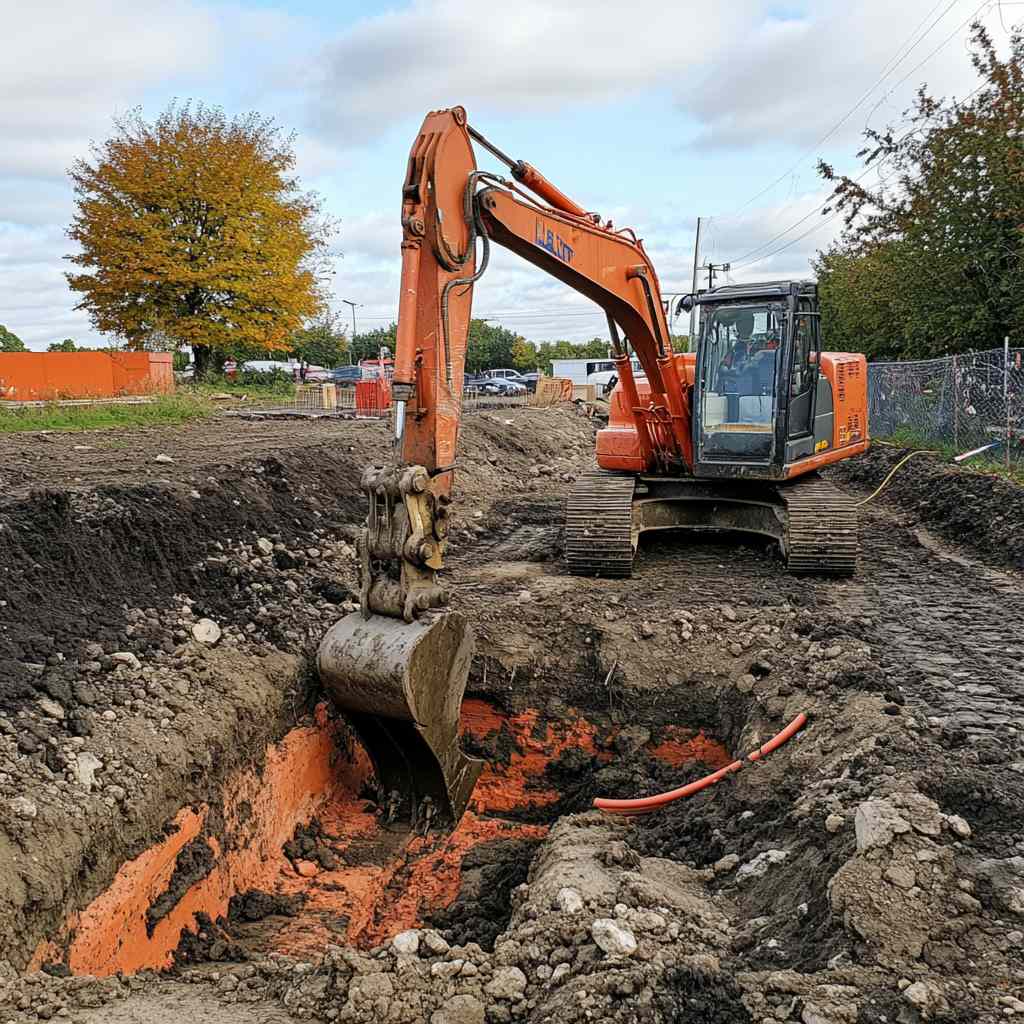
Guarantees Foundation Stability
A well-executed excavation sets the stage for everything that follows. It creates a reliable, compact base that reduces shifting, cracking, and uneven settling over time.
When the ground is solid, your addition stays solid, plain and simple. It’s the first safeguard against costly structural problems down the line.
Proper Drainage
Water is one of a home’s worst enemies if not handled properly. Excavation allows contractors to grade the land with intention, angling surfaces to direct runoff away from your structure. This reduces the risk of leaks, flooding, or erosion. Good drainage isn’t just smart, it’s essential.
Utility Access
Excavation clears space not just for the foundation, but also for critical infrastructure. Running sewer lines, plumbing, and electrical conduits during this phase prevents expensive rework later. It also gives specialists the room they need to place everything correctly without having to dig again.
Customization
Every addition is different. Excavation offers the flexibility to shape the land to match your exact plans, whether you’re working around natural terrain, adjusting for zoning setbacks, or building into a slope. With the right crew, even tough landscapes become workable ground.
Excavation Challenges and How to Overcome Them
Common Obstacles
Excavation is unpredictable by nature. Below the surface, things can get complicated:
- Rocky Soil: Dense or solid rock can stall progress and require jackhammers or rock-splitting tools.
- Hidden Utilities: Old, unmarked lines can create safety hazards and legal complications.
- Unstable Ground: Saturated or loose soil can shift unexpectedly, making it dangerous or unsuitable for immediate building.
Solutions
Veteran crews don’t just dig, they adapt. Specialized machinery like hydraulic breakers, compactors, and ground stabilizers help manage tough terrain. Teams often use ground-penetrating radar to locate utilities before a shovel hits the dirt. And when soil conditions are risky, they’ll reinforce the area with gravel, geo-grid, or compaction techniques to stabilize the build site.
Importance of Professional Expertise
Excavation is more than moving dirt, it’s about understanding the relationship between land and structure. A skilled contractor reads the land like a blueprint, anticipating problems before they arise. They use experience, precision, and judgment to turn uneven terrain into a build-ready site. With the right team, you don’t just dig, you lay the groundwork for everything that follows.
Why DIY Excavation is Risky for Home Additions
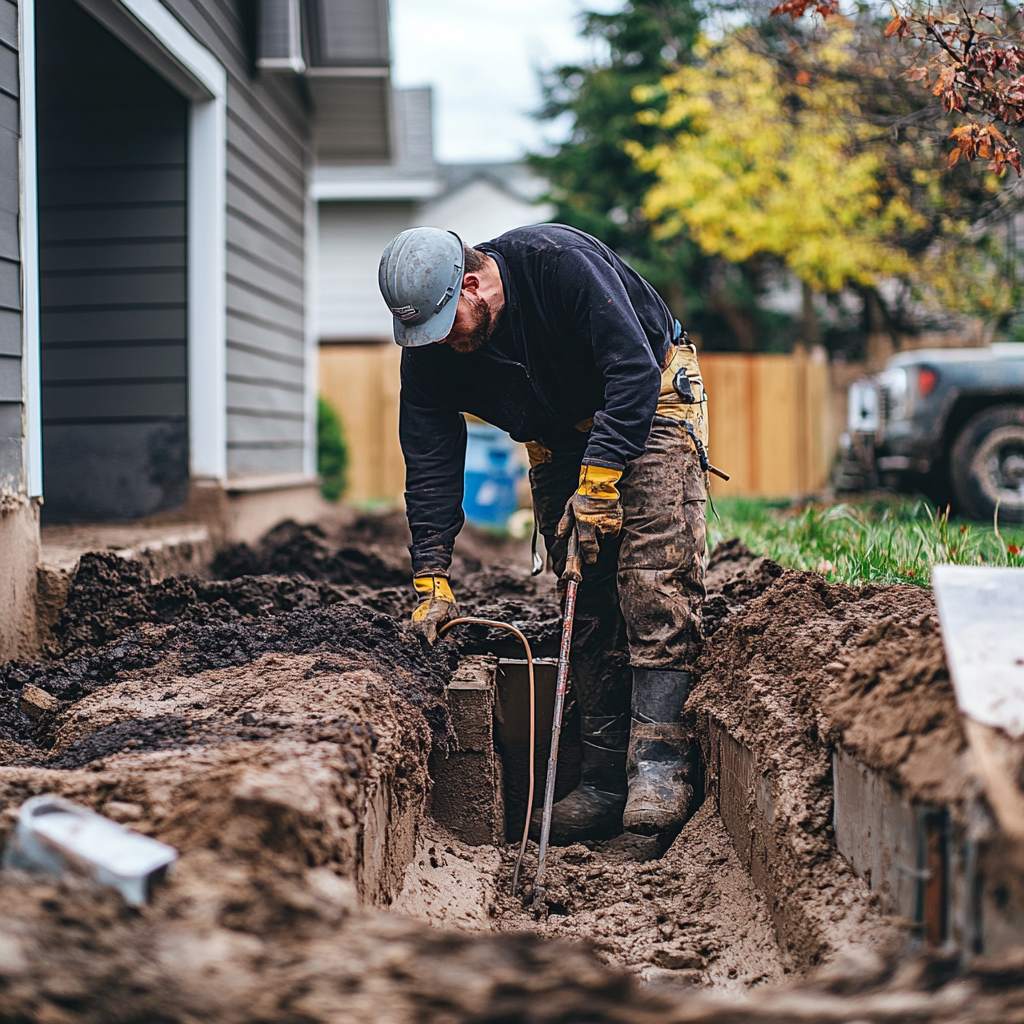
Lack of Proper Tools
Rental equipment often isn’t sufficient for complex excavation projects, leading to inefficient work and potential hazards.
Worst case scenarios is a mistake that costs a lot more than you’d expect.
Potential for Damage
Without proper knowledge, you risk damaging underground utilities or even your existing home structure. Not saying you don’t have the potential to DIY, there are many factors that can be attributed to the potential of damage.
Legal Concerns
Excavation work requires permits and must comply with local regulations. Failure to do so can result in legal penalties and project delays.
How Indepth Excavation Helps Prepare Your Home Addition
Professional Site Assessments
Our team makes sure your land is ready for construction with thorough evaluations. Doing ‘as is’ isn’t for us, our style or who we are. Before we make our plan, we survey your site and plot out our pathing to guarantee your foundations are as secure as your future.
Regulatory Expertise
Indepth Excavation navigates permits and adheres to local guidelines, keeping your project compliant. We navigate these channels frequently.
Proven Track Record
With successful projects throughout Washington, we have the experience to handle any excavation challenge. We’re among the very few in Washington with certain certifications for excavation in certain tasks.
Tips for Smooth Excavation Process Before Your Home Addition
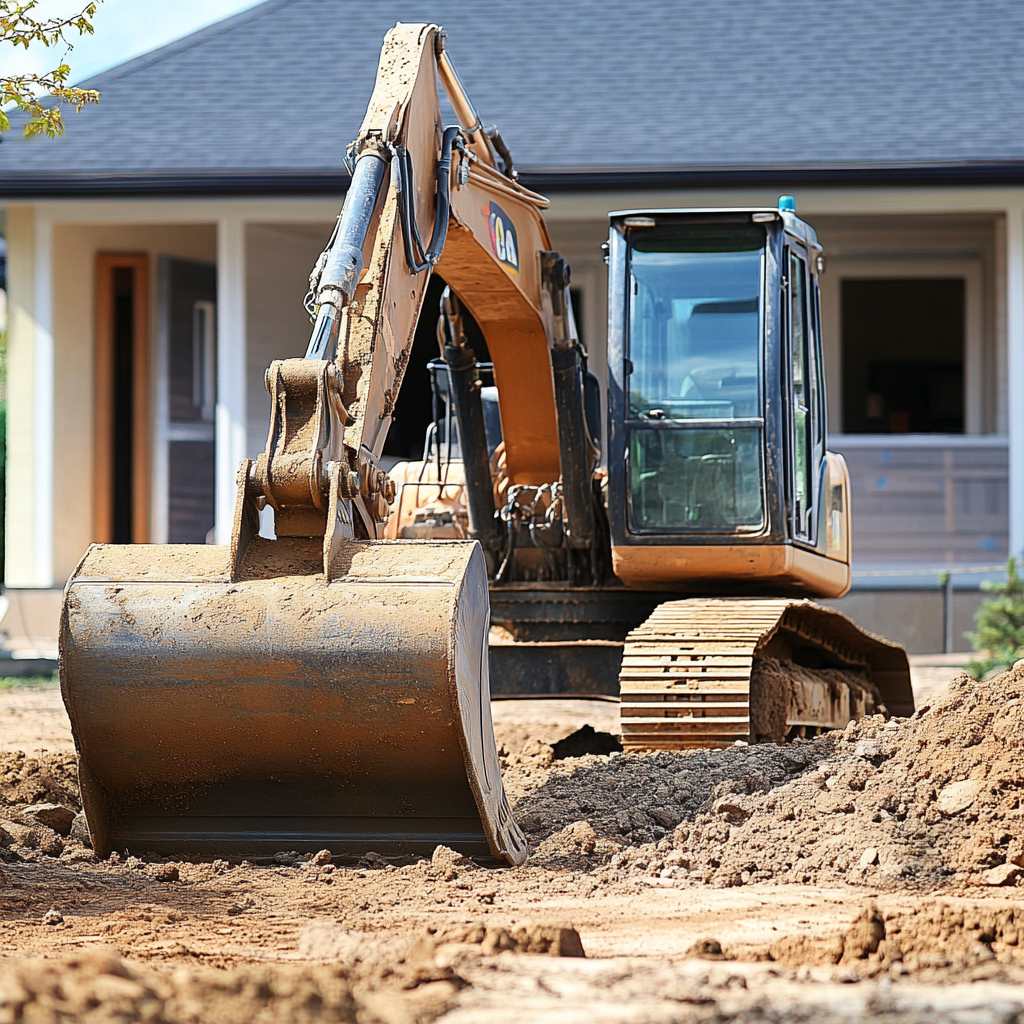
Planning Ahead
Secure necessary permits and schedule contractor services early to avoid delays. I use this rule of thumb for the majority of my events or plans. It’s been ideal in securing a smooth day when you have the plans, filling it to the brim.
Communicate with Your Team
Keep open lines of communication between contractors and architects to make sure everyone is aligned. Think of your words as the oil for the machine that is the labor. Don’t want to have them locked behind something because you had forgetting about prior engagements. The same would go for your team, they’ll keep you as informed as you keep them.
Prepare for Surprises
Allocate extra time and budget to manage unexpected challenges that may arise during excavation.
Excavation might be out of sight, but it’s never out of mind when it comes to a successful home addition. Starting your project with proper excavation sets the stage for everything that follows, from the foundation to the final touches.
Start your addition on solid ground—Contact Indepth Excavation for expert services tailored to Washington homeowners. Let us help you lay the literal and figurative groundwork for your dream home expansion.
